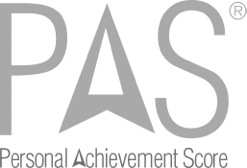
…today’s secret…Untraining the elephant.
Maybe you know about this technique to train circus elephants.
Drive a sturdy stake in the ground and chain a baby elephant’s leg to it.
The little elephant yanks and tugs and struggles against the chain, but it can’t pull it out. Eventually, the baby elephant figures out that it can’t defeat the restraint and stops fighting it.
As an adult elephant they remember this lesson. Even though they could now snatch the stake out of the ground, they don’t even try.
Think of this as childhood trauma for elephants.
Childhood trauma events can range from psychological, physical, or sexual abuse at home to violence or bullying at school. There are gobs more trauma events…
Research indicates that two of three people you are helping have some degree of childhood trauma.
Picture this as their stake in the ground.
Today’s Secret is not about the morality of how to train the world’s largest land mammal.
It’s about understanding that childhood trauma can manifest itself in adulthood to learning problems, health problems, and nearly all behavioral and substance use disorders…and we should be paying more attention to it than we are.
Fortunately, over the last few decades, there has been increased national recognition on how childhood adversities affect adult outcomes.
Although an uphill battle and turtle slow, human service organizations are learning they can play an important role in a person’s trauma recovery.
The term Trauma-Informed has gained root in today’s helping lexicon.
There are Trauma-Focused organizations who are missioned to specifically focus on trauma healing.
There are Trauma-Informed organizations who have incorporated Trauma-Informed principles into their organizational processes.
And then there are Trauma-Informed individuals who understand trauma’s impact on people’s lives and, on their own, are learning how to better help the people they have chosen to help.
There is hope that adults can recover from traumatic childhood events and you are figuring out how to play an important role in their recovery.
“Go get em”…
